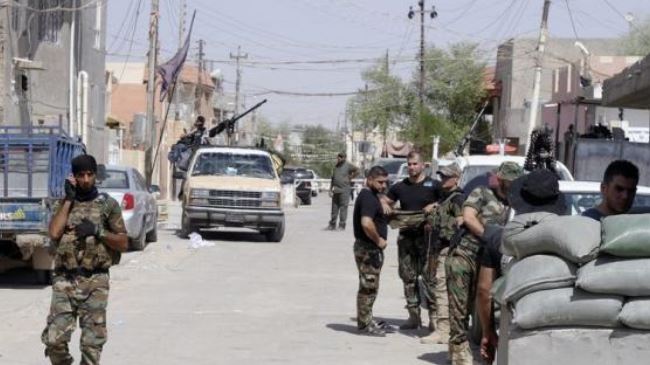 (Reuters) - The United States on Monday ruled out any possibility of future military coordination with Iran in a U.S.-led coalition against Islamic State fighters but held out the prospect of separate talks with Tehran on Iraq, describing the jihadists as a “serious threat” to Iran and the region.
(Reuters) - The United States on Monday ruled out any possibility of future military coordination with Iran in a U.S.-led coalition against Islamic State fighters but held out the prospect of separate talks with Tehran on Iraq, describing the jihadists as a “serious threat” to Iran and the region.
The comments follow a statement by Iran's Supreme Leader Ayatollah Ali Khamenei on Twitter on Monday in which he dismissed as hollow and self-serving U.S. efforts to build a coalition against Islamic State militants in Iraq and Syria, and rejected what he called a “U.S. offer to Iran” on Islamic State.
U.S. State Department spokeswoman Jen Paski acknowledged U.S. and Iranian officials have discussed the crisis in Iraq on the sidelines of separate negotiations about the Iranian nuclear program in Vienna in June, but she said the United States was not coordinating militarily with Iran.
"I am not going to outline every diplomatic discussion. But we are not and will not coordinate militarily," she said in a statement.
“We will be continuing those talks on the nuclear issue later this week in New York. There may be another opportunity on the margins in the future to discuss Iraq,” she said.
Iran says it backs the Syrian and Iraqi governments in their fight against the insurgents, but Tehran has not been included in a coalition being assembled by Washington mostly from Arab and Western states that will target the armed group.
"American officials' comments on forming an anti-Islamic State (alliance) are blank, hollow and self-serving, and contradictions in their behaviors and statements attest to this fact," Khamenei told state television earlier on Monday.
On his Twitter feed, Khamenei said the U.S. goal in planning a war on Islamic State was to dominate the region and turn Iraq and Syria into "Pakistan, where it can commit #crimes whenever it wants".
“I rejected US offer to #Iran abt #ISIS because US has corrupted its hands in this issue,” he said, referring to Islamic State by an alternative acronym.
It was unclear to what offer he was referring.
Kerry said last week it would be inappropriate for Iran to join the coalition, repeating the U.S. view that Tehran is a state sponsor of terrorism. Iran denies that charge.
Members of the U.S.-led coalition met in Paris on Monday to discuss their campaign, with French President Francois Hollande calling for united international action to tackle what he termed a global the threat from jihadists.
By Reuters
The Iran Project is not responsible for the content of quoted articles.

 QR code
QR code